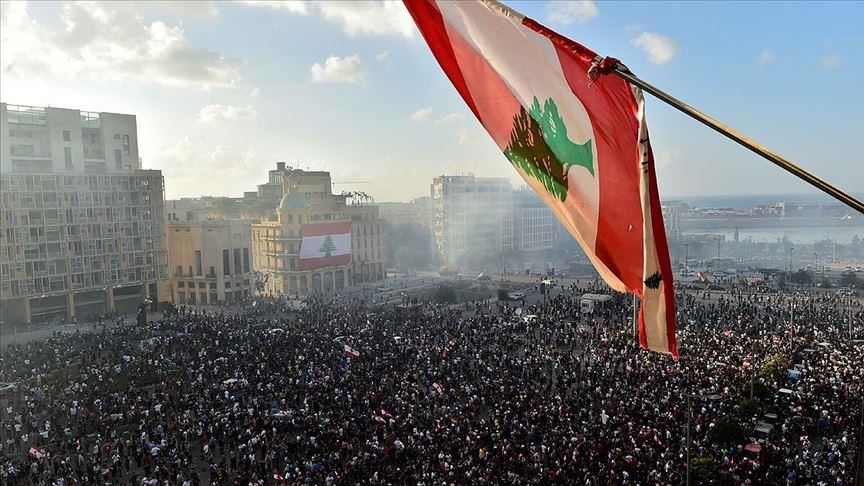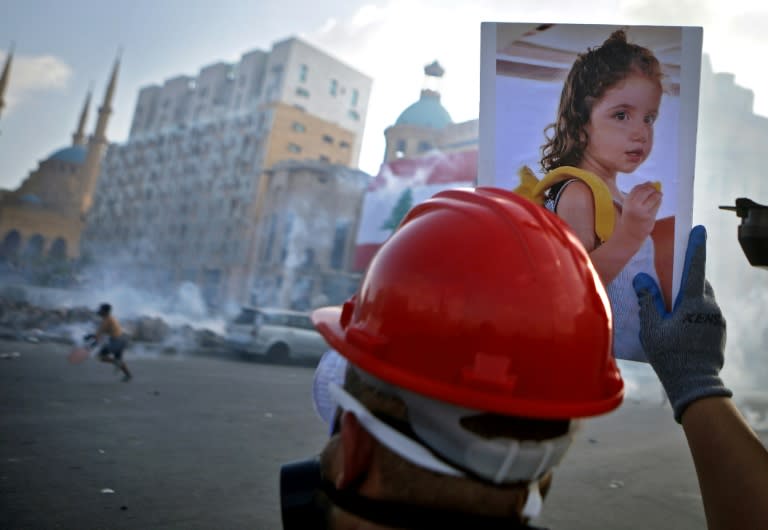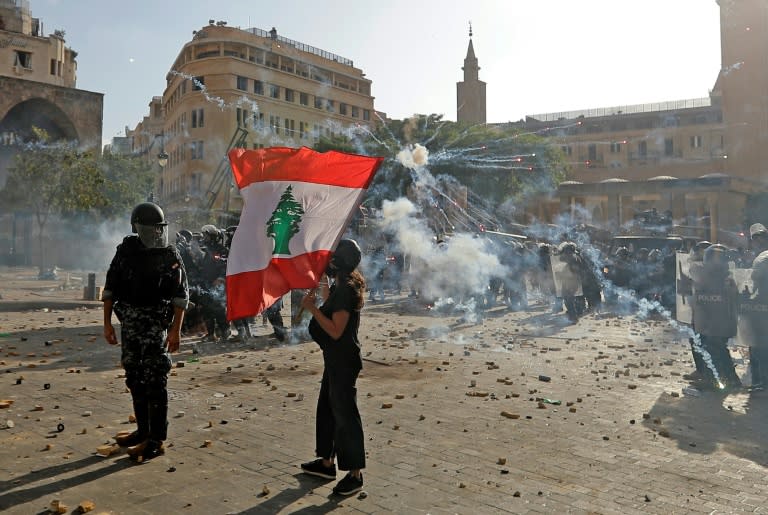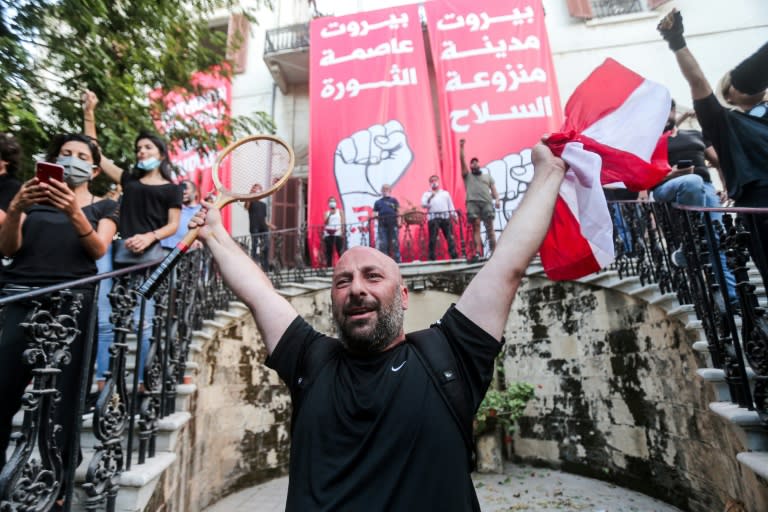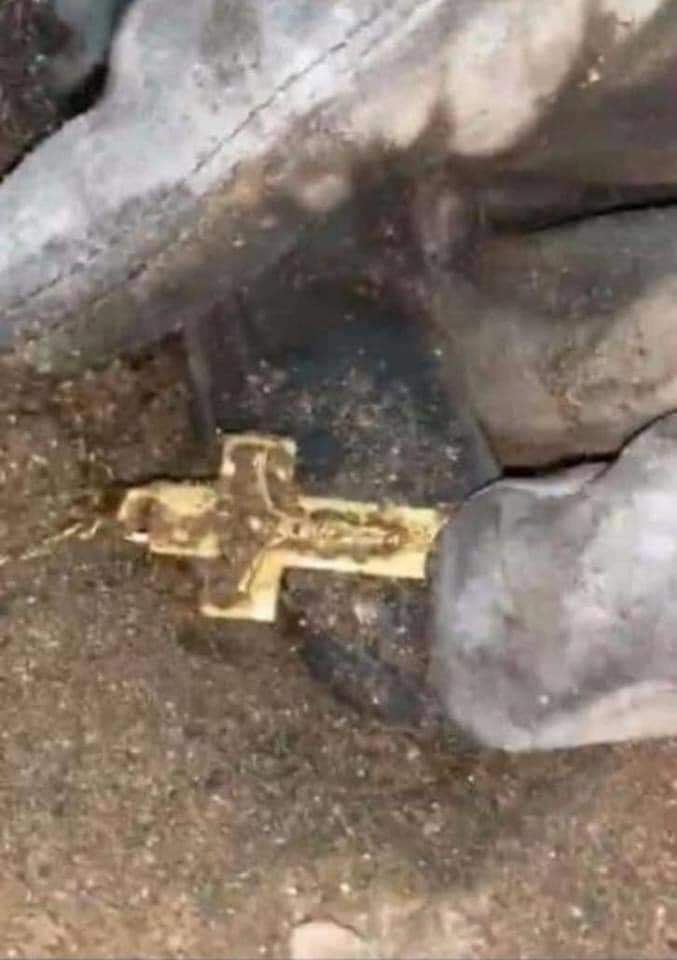
Joe Akiki cross in the rubble

by washingtonpost.com — Miriam Berger — Joe Akiki, 23, called his mother Tuesday afternoon to tell her he was about to start a 24-hour shift at his job as an electrician at Beirut’s port. Three hours later, he shared to a group chat a video of a fire at the port. Then he went silent. Three days after massive explosions that leveled a section of Beirut on Tuesday, he was still missing. His distraught mother pleaded on Lebanese TV for his return. “I will keep on waiting because I know that Joe Akiki is strong, Joe Akiki is a hero,” she told MTV, a Lebanese broadcaster. “Joe Akiki has been through worse things and has been able, with the help of God, to overcome them.” She decried Lebanon’s politicians, saying their children would be home by now. Akiki had taken the job, she said, to pay off university fees. He had wanted to leave Lebanon, but she had told him to stay and “water the cedar trees” — the country’s symbol. Hours later, civil defense workers pulled Akiki’s body out of the rubble. On social media, tributes poured in for the port worker. He had watered the cedars, one user wrote, with his blood.

the sister of Nicole el Helou
The explosions left at least 154 people dead and thousands injured. Lebanese Prime Minister Hassan Diab said they were caused by the ignition of 2,750 metric tons of ammonium nitrate, a fertilizer and bombmaking ingredient, improperly stored since 2014. In Lebanon, already beset by the novel coronavirus pandemic, along with political and economic crises, many people are seething over the apparent negligence that allowed the material to remain in the center of the city. As bodies continue to be pulled from rubble and identified at morgues, the country grieves for and has begun to memorialize the departed. Victims of the blasts in Beirut, a city beloved for its cosmopolitanism, span nationalities There are the 10 firefighters who snapped a group photo before heading to extinguish the first of the flames at the port, only to be engulfed in the explosions that followed. The husband and wife killed while eating at a restaurant in the trendy Gemmayzeh neighborhood. The three young military service members at the port who never made it home. One of them was a father of two young children, according to local media.
There is the Armenian Lebanese nurse killed while on the job at Al Roum hospital, as the Armenian Foreign Ministry told local media. Bank employee Nicole al-Helou, whose sister draped herself over her coffin during a funeral Thursday in southern Lebanon. Across the country of about 5 million, some bereaved families are burying their loved ones. Others continue frantic searches for the missing. Some, as Akiki’s mother did, hold on to hope that their son or daughter will turn up alive, even as the chances dim. Adding to the trauma, residents have taken on much of the cleanup themselves, expecting little support for rebuilding from their cash-strapped and indebted government. “Today we are distraught and lost for words, but we are also angry and furious at the monsters responsible for this unfathomable madness!” wrote one grieving family member in a tribute on Facebook.

